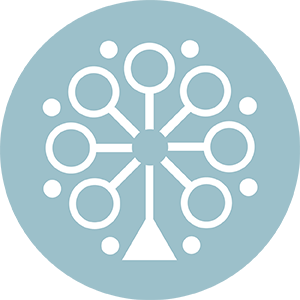Beyond Burnout: Unveiling the Hidden Challenges of Professional Services
“Be open with managers about workload and deadlines. Don't be afraid to ask for help or push back on unrealistic expectations.”
Professional service employees are facing a multitude of challenges in today's landscape. Here are some of the top issues they are encountering:
Work-Life Balance and Burnout
The "Always On" Culture:
Technology keeps us connected 24/7, blurring the lines between work and personal life. This constant pressure to be available leads to burnout and decreased productivity.
Increased Workload:
Many professional service firms are facing pressure to deliver more with less. This can lead to employees feeling overwhelmed and stressed.
The Great Resignation:
The current job market allows employees to explore other options more easily. Retention is a major concern, and coaches are helping employees find meaning and satisfaction in their current roles.
Shifting Skills and the Future of Work
Automation and AI:
Technology is changing the way professional services are delivered. Coaches are helping employees develop new skills and adapt to the changing landscape.
Lifelong Learning:
The need for continuous learning is more important than ever. Coaches are equipping employees with the tools and strategies to stay up-to-date in their fields.
Soft Skills Gap:
While technical skills are important, success in professional services often hinges on strong communication, collaboration, and problem-solving skills. Coaches are helping employees develop these crucial soft skills.
Mental Health and Well-being
Rising Stress and Anxiety:
The fast-paced nature of professional services can take a toll on mental health. Coaches are helping employees manage stress and anxiety to maintain well-being.
Work-From-Home Challenges:
While remote work offers flexibility, it can also lead to feelings of isolation and reduced collaboration. Coaches are helping employees navigate the unique challenges of remote work environments.
Imposter Syndrome:
Doubting one's ability is a common issue, especially among high achievers. Coaches are helping employees build confidence and overcome self-doubt.
Additionally, coaches are seeing a rise in…
Generational Differences:
Managing a multi-generational workforce requires understanding the different communication styles and work preferences of each generation.
Diversity and Inclusion:
Creating a more inclusive workplace is crucial for attracting and retaining top talent. Coaches are helping foster an environment where everyone feels valued and respected.
By understanding these challenges, coaches can equip professional service employees with the tools and strategies they need to thrive in today's demanding environment.
Employees in the professional services industry can navigate these challenges in a few key ways.
Work-Life Balance and Burnout
Set Boundaries:
This includes designating specific work hours, taking breaks throughout the day, and resisting the urge to check work emails after hours.
Prioritise Self-Care:
Schedule time for activities that reduce stress and promote well-being, like exercise, hobbies, and spending time with loved ones.
Communicate Needs:
Be open with managers about workload and deadlines. Don't be afraid to ask for help or push back on unrealistic expectations.
Explore Alternative Work Arrangements:
If possible, discuss flexible work schedules or remote work options to create a better work-life balance.
Shifting Skills and the Future of Work
Embrace Continuous Learning:
Dedicating time to professional development shows initiative and helps stay relevant in the face of change.
Develop Adaptability:
Be prepared to learn new skills and adjust to evolving technologies and work models.
Network and Seek Mentorship:
Connect with colleagues and industry leaders to stay informed about trends and identify skill gaps.
Focus on Soft Skills:
Invest in honing communication, collaboration, and problem-solving abilities, as these will remain valuable regardless of technological advancements.
Mental Health and Well-being
Practice Stress Management Techniques:
Techniques like mindfulness meditation, deep breathing exercises, and spending time in nature can be highly effective.
Maintain Social Connection:
Schedule regular calls or video chats with colleagues, or join virtual social groups to combat feelings of isolation, especially when working remotely.
Seek Help When Needed:
Don't hesitate to utilise company-provided Employee Assistance Programs (EAPs) or seek professional help for managing stress, anxiety, or imposter syndrome.
Additional Tips
Stay Informed:
Actively seek out information about company culture, diversity and inclusion initiatives, and how the company is preparing for the future of work.
Be an Advocate for Change:
If you see areas for improvement in work-life balance, mental health supports, or skill development opportunities, voice your concerns and suggestions to leadership.


